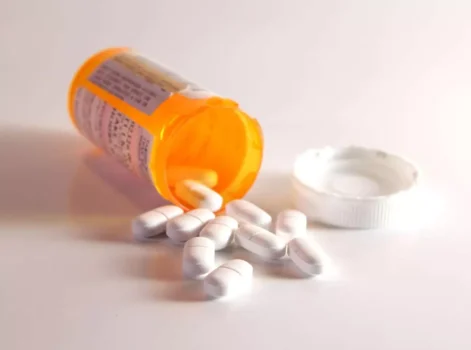Drinking and Your Eyes Alcohol and Vision

Sure, we know that drinking affects our vision and can cause blurred or double vision, especially at night. This is sometimes known as “beer goggles.” After all, impaired vision and a slowed reaction time are why drinking and driving are often a fatal combination. Possible short-term problems relating to intoxication include blurry vision, changes in color perception, and light sensitivity. This article reviews how alcohol can affect vision, the possible short- and long-term effects, treatments, and more.
Why Does Alcohol Blur Your Vision? Exploring The Causes Of Blurry Vision After A Night Of Drinking
Typically, the eyelids are also swollen, the eye is red with mucus coming out of it, and you may have some sensitivity to light. When part of the retina gets pulled away from the back wall of the eye, the nerve cells there no longer work properly and the result can be suddenly blurry vision. Also look for flashing lights, floaters, a persistent shadow, or sudden loss of your side vision. If this occurs, the brain doesn’t get enough oxygen and vision, as well as other bodily functions, may be impaired. In addition to blurred vision, light sensitivity, seeing double, and even sight loss may occur. At the heart of blurry vision can be a variety of different conditions.
Understanding the Relationship Between Alcohol and Dry Eye Disease (DED)
There are many reasons to stop drinking, and damage to vision—whether short- or long-term—is one of them. While occasional blurry vision after drinking is usually temporary and harmless, excessive and long-term alcohol consumption can lead to serious vision problems. Conditions such as alcoholic optic neuropathy and cataracts can develop over time and cause irreversible damage to the eyes. In conclusion, blurry vision after drinking alcohol can be a problematic and distressing issue. However, there are several steps individuals can take to prevent or reduce its occurrence. It is important to prioritize one’s health and well-being when consuming alcohol to minimize any potential negative effects on vision.
More on Eye Health
Having sharp vision both near and far is crucial to everyday functioning, and failing to treat refractive errors can result in vision loss. Like other senses, vision contributes to our interpretation of our environment. Vision allows us to enjoy the world’s beauty, which may, indeed, be in the “eye of the beholder.” High blood sugar levels from diabetes can make these blood vessels bleed and leak fluid. This damages the retina, and can cause you to lose your vision. Research suggests consuming more omega-3 fatty acids has some positive effects on people with dry eye symptoms.
- Consuming alcohol may increase dehydration, promote inflammation, and disrupt vitamin transport — all factors that can negatively affect tear quality and quantity.
- Drinking can cause short- and long-term challenges with eye health and vision, including a condition known as dry eye disease (DED).
- Generally no, but if allergies cause you to have increased formation of tears or heavily irritated eyes then yes, those symptoms can lead to blurry vision.
- It is a common trigger for people who have migraines, and alcohol can also trigger a headache for some people who don’t otherwise have migraines or headaches.
- If you have any eye problems you worry may be related to drinking, talk to your eye doctor.
- These include the cornea, lens, and jellylike substance that fills your eyeball, called the vitreous humor.
Ways Excessive Drinking Can Cause Vision Problems
Astigmatism is usually genetic, but might also be caused by an eye injury or eye surgery. While a virus often causes this inflammation, it can also result from a bacterial infection or allergies. Conjunctivitis caused by bacteria usually requires antibiotic eye drops.

If blurry vision persists, or you have other symptoms or any pain with your blurry vision, see a doctor for a comprehensive eye exam. Additionally, taking breaks between alcoholic beverages can help prevent or reduce the occurrence of blurry vision. Pacing oneself and allowing the body time to metabolize the alcohol can help mitigate the effects it has on the optic nerve. This can be achieved by alternating alcoholic drinks with non-alcoholic ones, such as water or soda, and taking periodic breaks from drinking. Blurry vision after drinking alcohol is a common occurrence for many individuals. This phenomenon can be alarming and may cause temporary visual impairment.
- For example, researchers found that people who have been drinking are likely to rate images as more attractive, widely known as the “beer goggles” effect.
- The Centers for Disease Control and Prevention (CDC) defines moderate drinking as up to one drink per day for women and up to two drinks per day for men.
- Once you’ve treated the underlying cause, your blurry vision should improve.
- In conclusion, blurry vision after drinking alcohol is generally a temporary effect that occurs due to alcohol’s impact on the central nervous system.
- This can help prevent the drastic impairment of the optic nerve and minimize the occurrence of blurry vision.
The long-term effects of alcohol on the eyes

Blurry vision can result from refractive error or certain diseases that require medical treatment. High blood pressure may cause the blood vessels in the retina to narrow, restricting blood blurry vision day after drinking flow and causing swelling. Over time, this can damage the blood vessels and lead to vision problems. Your eyesight may become blurry as you age or due to certain health conditions.

- This could be a sign of a stroke, brain tumor, detached retina, or other problem that requires immediate action.
- You should consider visiting a medical professional in the next two weeks to discuss your symptoms.
- Diabetic retinopathy (DR) causes progressive damage to the retina’s blood vessels and may result in blindness.
- In fact, drinking alcohol did not cause any increase in dry eye symptoms for men.
- If the hyphema causes high pressure in the eye, an ophthalmologist may offer to remove the blood surgically.
If there’s an injury to the iris or pupil, this can cause blurry vision, as well as light sensitivity and pain. Vision loss or blurry vision with severe eye pain needs immediate treatment. Without rapid treatment, permanent damage and vision loss can occur.




Leave a Reply